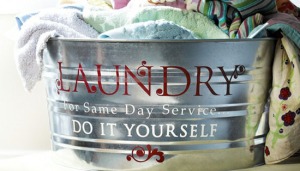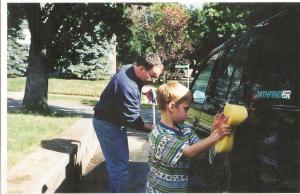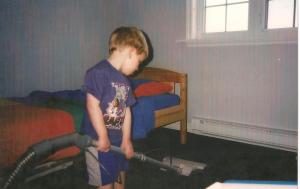 As an elementary school teacher, I rarely assign homework.
As an elementary school teacher, I rarely assign homework.
Of course I encourage my students to read. I also encourage them to follow the news, eat right, and be kind to their friends and family.
But nightly math sheets and fill-in-the-blank grammar exercises?
Nope.
I’ve studied the research, read the books, watched the kids, and talked to the parents. I’ve raised two boys to teenagehood and I was in school for almost half my life. And I know, in my gut and in my brain, that regular, daily homework for homework’s sake is at best, unnecessary, and at worst, detrimental to children’s learning.
Go ahead.
You can start the shrieking and the hand-wringing now. I’ll wait. I’ve taken more flak for my decision to not (regularly) assign homework than I have for just about anything else in my career (except my smart mouth, but that gets me in trouble everywhere I go).
The myths that surround the benefits of homework have been around for so long, most of us just assume it’s a necessary evil.
But it’s not.
Now, I know what you’re saying.
Reader: OK, Heather, let’s say that I believe you (which I don’t) when you say the research shows that homework makes little or no difference in terms of academic success, especially at the elementary school level, but what about the non-academic benefits?
Me: Like what?
Reader: Well, you know, homework teaches kids responsibility and time management and self-discipline. That stuff is important!
Me: I agree. Those things are important. But does homework really teach those things? Can you show me a study that proves that to be true? How many 7-year-olds do you know who come home from school and pull out their homework and say, “Gee Mommy. I have to finish this math worksheet and colour in this photocopied picture of an apple without going outside the lines before school starts again tomorrow. Let me see, how much time will I need? I guess I’ll have my snack now and then I’ll go outside and play for 30 minutes. That will leave me with enough time to colour in the apple while you’re making dinner. Then I might watch a little TV for no more than 45 minutes because I need to leave myself lots of time to work on this math because I really don’t understand it.”
Let’s be honest here.
When homework comes home, the only person who has to cram more responsibility, time-management and self-discipline into their already crazy day is the parent or guardian of the youngster with the homework.
So, how DO we teach important things like those noted above?
One word: laundry.
Yup. Laundry.
Now, this means that the job of teaching responsibility, time-management, and self-discipline outside of school hours has to be taken out of the hands of teachers and placed into the hands of parents and guardians.
I know. Now I’m talking crazy talk.
“But you’re the teacher! It’s your job!” I can hear you screaming.
Yes, I’m the teacher. And when your child is in school, I will do everything I can to teach them all sorts of things, both academic and non. But, I can’t follow my students home.
And home is where these incredibly important lessons need to be taught.
Household chores (unlike homework) have been proven to instill in children all of those great non-academic life lessons that help nurture and grow our children into responsible adults.
“Using measures of an individual’s success such as completion of education, getting started on a career path, IQ, relationships with family and friends, and not using drugs, and examining a child’s involvement in household tasks at all three earlier time, Rossmann determined that the best predictor of young adults’ success in their mid-20s was that they participated in household tasks when they were three or four. However, if they did not begin participating until they were 15 or 16, the participation backfired and those subjects were less “successful.” The assumption is that responsibility learned via household tasks is best when learned young.” http://www.cehd.umn.edu/research/highlights/Rossmann/
Children who feel like they are contributing members of their community are more likely to feel like they belong.
I am not suggesting we send our children back down into the mines on the backs of old ponies to dig for coal. I am suggesting that they do age-appropriate tasks that allow them to feel like they are contributing to making life better.
Children are not pets or pieces of furniture or even guests. They are a valuable part of the family unit. They BELONG.
I chose laundry as an example but any chore will do. (Don’t panic. You can ease into it. I’m not expecting your child to be running a laundromat out of your home at age 11.)
Children as young as 3 can be taught how to put their dirty clothes in the laundry hamper instead of throwing them on their floor.
By the time that child reaches elementary school, he or she can sort the laundry into whites and colours and help mom or dad carry it to the washing machine. They can also put their clean clothes away in the drawers.
Then you can add folding or hanging up their own clothes. (This one is scary because children rarely fold their clothes in a way grown-ups consider acceptable. That’s OK. If they don’t like wearing wrinkle clothes, they will do it differently next time.)
You want to teach a teenager about time-management? Let them do their own laundry. They will soon discover that if they want to wear that dirty shirt and those jeans to the dance, they need to do their laundry at least the night before so everything will have a chance to dry.
You want to teach a child about self-discipline? Let them do their own laundry. They will learn that instead of playing video games non-stop for 3 hours, they need to keep an eye on the washer, so they can move one load to the dryer and get another one in.
You want to teach a pre-teen about responsibility? Let them do their own laundry. They will learn that no one else is going to pick their dirty clothes up off the floor and wash them, so they better do it or else they’ll be wearing dirty clothes to school.
(Note to the OCD Moms out there. Back away from the mess. Seriously. Close your eyes, put your hands in your pockets, breathe into a paper bag. Better yet, shut the door, walk away, pour yourself a glass of wine and sit. Do whatever you have to do but do NOT go in there and ‘rescue’ your child. Think of it as short-term pain for long-term gain.)
Abolish homework. Mandate laundry.
*******************************************************************************************************************
Disclosure: I have two teenage sons. Both have been doing their own laundry, along with numerous other chores, for years. One took to it like a duck to water, while the other kept forgetting to add the laundry soap.
The first time he realized what he had done, he called me into the laundry room in a panic, “Omygawd! Does this mean I have to do it all over again?!” (Like he had just scrubbed each item of clothing by hand on a rock in the middle of a river.)
“Well,” I said. “Smell your clothes. Do they smell clean?”
We both smelled a piece of wet clothing. Mine smelled like wet stinky teenage boy.
“Fine,” he said.
He added the soap and hit Start again.
Lesson learned.


